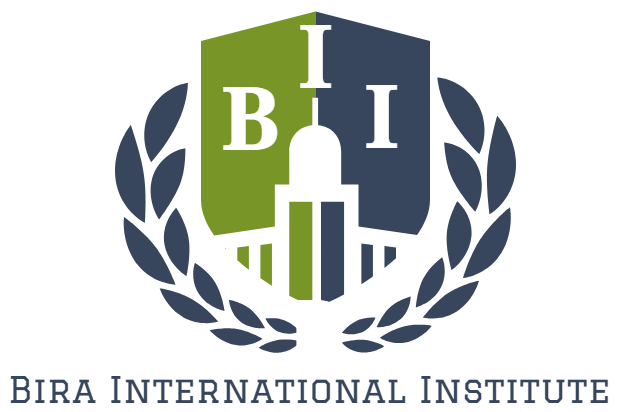Where do counsellors work?
Counselling happens between a client and a counsellor at a specified time. During this time, the client has the opportunity to talk deeply about his emotions and experiences while the counsellor shows empathy, provides an unbiased and safe environment, and actively listens to the client. The counsellor may also teach the client several techniques that may help regulate emotions and cope with stressful situations. Counselling also involves several approaches and a counsellor may integrate two approaches to help the client effectively.
Trust is the foundation of counselling. Counsellors know the value of the client’s confidential information and not unless the law requires the counsellor to disclose it to the client’s close family members, the counsellor shall not disclose it with anyone.
Now let’s take a look at the working hours and the workplaces of a counsellor.
Working hours of a counsellor
Counsellors’ working hours vary depending on their workloads and workplace. Some counsellors work full time while others do it on a part-time basis..
If the counsellor has no sessions with a client, they do administration work. They conduct research to learn more about how they can fully help their clients and write notes about their previous sessions. If a counsellor can work from home, they set their sessions based on the standard working hours while others work in the evening if that is their clients’ availability.

Workplace of a counsellor
Workplace of counsellors is not limited to one setting only. They can work in various settings like centers, hospitals, facilities, clinics, prisons, schools, businesses and homes.
They can work for a large organization or be fixed in a specific location. They can also move to different places to meet their clients. The only requirement for them to conduct their counselling sessions is a private place where they can discuss with their clients without any disturbances and interruptions.
1. Hospitals and clinics
Counselling professionals with a degree in counselling can work in hospitals. They may provide services to families who experience loss of a loved one, patients who might have trauma and stress disorders because of an illness, accidents or other past experiences. They can also assist patients with psychological and behavioural problems.
Counsellors in hospitals and clinics work with physicians, other mental health professions, psychiatric nurses and psychologists. They may conduct diagnostics, mental health assessments and referrals for further treatment of the patients.
2. Centers
Centers can be detoxification centers that specialized in giving treatments to clients with drug or alcohol problems. Counsellors help clients attain recovery from substance abuse. They can work in inpatient facilities wherein they care for patients who need 24-hour care while others work in outpatient facilities. Counsellors who work in outpatient facilities only assist patients during the day.
Counsellors help their clients in identifying behaviours and problems related to their addiction. Counsellors may also conduct programs to assist the client in establishing effective coping strategies.
3. Facilities
Facilities can be mental health facilities or residential care facilitates. Counsellors may conduct individual counselling sessions or group therapy. A counsellor with a master’s degree can be employed as a social worker, mental health counsellor. At the same time, those with doctorate are qualified to work as a coordinator or director of the agency. They may also work with therapists, physicians and social workers.
Residential care facilities, on the other hand, give services to those who need continuous supervision. They live temporarily in the facility until they can return to their family, community or workplace. Residential care facilities cater to troubled youths, children with autism or people with mental and physical disabilities. Counsellors in this setting provide vocational and personal counselling and management support.
Substance abuse and addiction counsellors may also work in facilities while other counsellors cater to the elderly population in facilities. Elders are placed in care facilities if their families cannot provide the treatments and assistance they need. Counsellors who deal with the elderly are called geriatric counsellors and they provide long-term or short-term services.
Counsellors who work in correctional facilities or prisons help clients achieve rehabilitation by preparing programs for them. They also provide support to their clients as they transition back to the community after being released. Rehabilitation counsellors can also assist during trials and give referrals.
4. Schools
Counsellors play an essential role in helping students achieve their goals, discover their potentials and maintain a balanced personal and study life. They give several guidance services throughout the school year.

Additionally, counsellors may also guide graduating high school students in choosing their colleges or universities and support them in knowing the career path that will fit them most. Various teenage problems such as peer pressure and self-worth may also be encountered by the students and the counsellor may provide help for them.
Counsellors in colleges and universities may also teach undergraduate students provided they have enough educational background. They help in internship programs, admission requirements and career programs such as job hunting skills,interview techniques and resume writing.
Counsellors may also help in the curriculum and program planning, conduct research and even write books.
Counsellors can also work with teachers, school administrators and parents to help students who are experiencing stress, family-problems, time management and other personal issues that may interfere with their studies. They can also suggest strategies and techniques that will help the students achieve success.
5. Businesses and companies
Some counsellors work in companies and help employees who are experiencing stress, emotional issues and other problems. They may also help in employment and career transition challenges.
6. Home or private practice
Others have chosen to offer services from their home. They may conduct online sessions depending on the availability of the client. Others also rent or buy their own office spaces to practice privately. They have more flexibility since they can choose their location and work schedule.
The opportunities for counsellors are vast. They can choose their specialization and select their desired workplace. Counsellors are a vital part of the community and they can be part of different sectors. People need guidance and support wherever they are and having counsellors in their areas will surely help them.
If you are interested to know how much counsellors in the US and UK earn, click the article here. You can also check out the counselling courses offered here and start your career as a counsellor!
We are also offering a FREE introduction to counselling course. Check it out and avail a 25% discount on other courses upon the completion of this free course.

